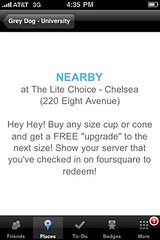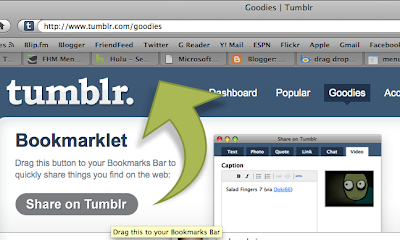
It’s been a month since I switched to the iPhone 3GS from the Android G1 and it seems worth giving my reflections. When I had the G1 I loved it. The Android operating system is awesome- Google’s effort in opening up the mobile phone is very impressive, and they’ve proven over the last year they’re committed for the long haul. Here’s what it does well: The interface is great, much more like a computer operating system. Simple things like an information bar, which makes it more like Windows, may seem unnecessary to Apple but the reality is status updates like new email & text message alerts are important and often lost on the iPhone. Also, the Google apps integration is fantastic, and for the world outside of work (i.e. Microsoft Exchange) that’s much more exciting. You can sync Gmail and Google Calendar to iPhone, but it’s not native and it kills some of the reasons I joined Gmail in the first place, like threading. Also Android lets 3rd party apps plug in to the OS, which is important for things like taking a picture with the camera and then having your choice of where to upload to, rather than on the iPhone where you have to pre-select which program you are going to use to upload even before you take the picture (or after you exit the camera all together).
Other features of Android like desktop widgets are cool but I don’t really find them necessary. iPhone lets apps do small updates through the icons, and leaving widgets on the G1 had two huge side-effects- it killed the battery life, and slowed the OS significantly. This is also my feeling on multitasking; in most cases, you really don’t need it. If iPhone apps were a little better at holding your place when exiting and re-opening them, and there was a normal info bar for push notification & other message alerts, I can’t see many reasons I’d need multitasking, especially considering the likely trade-off between that and battery life.
So what the iPhone 3GS in the face of this? Well as much as I loved the G1, I really haven’t turned it on since getting the new iPhone. There’s a lot to love about Android, but the 3GS is by far and away a better phone. First a caveat, it would definitely be fairer to compare the new iPhone to a more modern Android phone, but I don’t have that luxury. So after a month of using an phone that is all together faster in every way, from using applications to browsing the web, I can’t imagine having it any other way. Also for all of the suckiness of OS lockdown, it’s amazing how beautifully consistent every experience is on the 3GS. Every time you open an app loads just as quickly, and the usability of many applications is also comforting. What I really miss the most about the G1 is the keyboard, which in all honesty I’d take on the iPhone in exchange for a bit thicker phone. But the iPhone’s typing auto-correction is actually pretty impressive, making onscreen touch-typing much more functional than on Android.
So in the end it comes down to this. From my experience, the iPhone 3GS does the things I care about the most significantly better than the G1. That probably means that Android needs to be installed on a phone that’s worthy of its breadth of functionality, which it looks like the upcoming Verizon Droid will do. If that happens, then Apple needs to take the iPhone OS to the next level to compete. If not, then I’m sad to say I’ll take less functionality for an overall better experience, as much as I didn’t want to come to that realization.



.jpg)
![Reblog this post [with Zemanta]](http://img.zemanta.com/reblog_e.png?x-id=388bae8e-c66e-4f7d-9bd6-6364b7799931)






![Reblog this post [with Zemanta]](http://img.zemanta.com/reblog_e.png?x-id=bada898e-6972-4ef2-a4d5-f1788c40f998)
